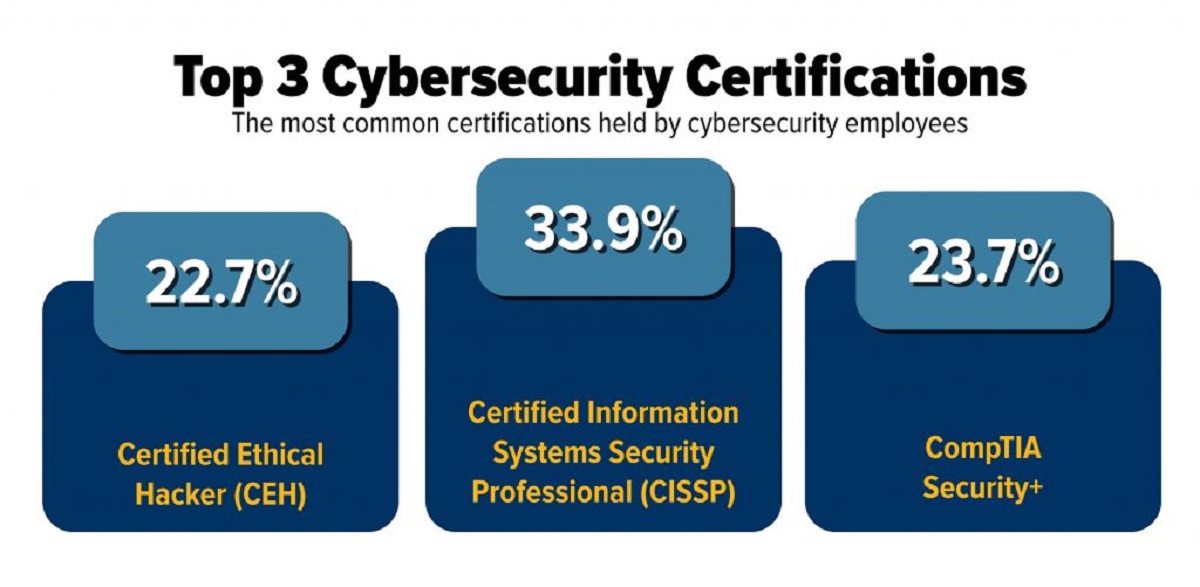Introduction
Welcome to the world of cybersecurity! With the increasing reliance on technology, the importance of protecting sensitive information from cyber threats has never been more crucial. As the demand for cybersecurity professionals continues to rise, more and more individuals are seeking opportunities to enter this exciting and rewarding field.
If you are considering pursuing a career in cybersecurity, you may have come across the term “cybersecurity bootcamp.” These intensive training programs have gained popularity in recent years for their ability to quickly prepare individuals for entry-level positions in the industry.
But what exactly is a cybersecurity bootcamp? How beneficial are they, and what costs can you expect to incur? In this article, we will delve into these questions and provide you with a comprehensive guide to understanding cybersecurity bootcamps and their prices.
A cybersecurity bootcamp is a focused, immersive training program designed to equip individuals with the necessary skills and knowledge to kickstart their careers in the cybersecurity field. These programs are typically short-term, ranging from a few weeks to several months, and offer hands-on, practical training in various aspects of cybersecurity.
Unlike traditional degree programs, cybersecurity bootcamps are known for their accelerated nature, emphasizing real-world scenarios and practical application of skills. They aim to bridge the gap between theoretical knowledge and industry requirements, providing participants with the tools and hands-on experience necessary to enter the workforce quickly.
One of the main advantages of attending a cybersecurity bootcamp is the speed at which you can acquire the skills needed to start a career in the field. Traditional four-year degree programs often require a significant time commitment, whereas bootcamps offer a faster-paced alternative.
In addition to the speed, cybersecurity bootcamps also emphasize relevant and up-to-date skills that are in high demand in today’s market. The field of cybersecurity is constantly evolving, and bootcamps ensure that participants are equipped with the most current knowledge and techniques.
Now that you have an understanding of what a cybersecurity bootcamp is and its benefits, let’s delve into the cost factors associated with these programs in the next section.
What is a cybersecurity bootcamp?
A cybersecurity bootcamp is an intensive training program that aims to equip individuals with the necessary skills and knowledge to pursue a career in the field of cybersecurity. These bootcamps offer a focused and practical approach to learning, emphasizing hands-on experience and real-world scenarios.
Unlike traditional degree programs, which may take years to complete, cybersecurity bootcamps are typically shorter in duration, ranging from a few weeks to several months. This condensed timeline allows participants to gain the essential skills and knowledge needed to enter the workforce quickly.
Bootcamps often focus on specific areas of cybersecurity, such as ethical hacking, network security, incident response, or digital forensics. The curriculum is tailored to provide a comprehensive understanding of the subject matter, with an emphasis on practical skills that can be immediately applied in a professional setting.
One of the key features of a cybersecurity bootcamp is the immersive learning environment. Participants engage in hands-on activities, simulations, and projects that mirror real-world scenarios. This approach not only enhances technical skills but also develops problem-solving and critical thinking abilities.
In addition to technical training, bootcamps also cover essential soft skills required in the cybersecurity field. Communication, teamwork, and leadership are emphasized to ensure that participants can effectively collaborate with others and communicate complex concepts to non-technical stakeholders.
Cybersecurity bootcamps are often led by experienced industry professionals who bring their real-world expertise into the classroom. This provides participants with valuable insights and practical knowledge that goes beyond textbook learning.
Furthermore, bootcamps may offer networking opportunities, through industry partnerships or guest speakers. This allows participants to connect with professionals and organizations in the cybersecurity field, potentially leading to job opportunities or mentorship.
It is worth noting that while cybersecurity bootcamps can be an excellent way to gain relevant skills and jumpstart a career in the field, they are not a substitute for formal education. Bootcamps typically focus on specific skill sets and may not provide the same depth of knowledge as a degree program. However, they can serve as a valuable stepping stone and complement existing academic qualifications.
Now that you have a clear understanding of what a cybersecurity bootcamp entails, let’s explore the benefits of attending one in the next section.
Why attend a cybersecurity bootcamp?
Attending a cybersecurity bootcamp offers numerous benefits that make it an attractive option for individuals looking to enter the field of cybersecurity. Here are some compelling reasons why you should consider attending a bootcamp:
1. Fast-track your career:
Cybersecurity bootcamps are designed to provide focused and intensive training, allowing you to quickly acquire the skills and knowledge needed to start a career in the industry. Unlike traditional educational paths, which may take years to complete, bootcamps offer a condensed timeline, empowering you to enter the workforce sooner.
2. Practical and hands-on learning:
Bootcamps emphasize practical, real-world learning experiences. Through hands-on projects, simulations, and interactive exercises, you will gain practical skills that can be immediately applied in a professional setting. This practical approach helps bridge the gap between theoretical knowledge and practical application.
3. Industry-relevant curriculum:
Cybersecurity bootcamps are designed with the input of industry professionals, ensuring that the curriculum reflects the skills and knowledge currently in demand. This means you will learn the latest tools, techniques, and best practices used in the cybersecurity field, making you more marketable and valuable to potential employers.
4. Mentorship and networking opportunities:
Many bootcamps provide access to experienced industry professionals who serve as mentors and instructors. This direct interaction provides invaluable insights and guidance as you navigate your cybersecurity career. Additionally, bootcamps may offer networking opportunities, connecting you with industry experts and potential employers.
5. Career support and job placement:
Bootcamps often have dedicated career services departments, focused on helping graduates find employment opportunities. These services may include resume building, interview preparation, and job placement assistance. The support and resources provided by bootcamps can significantly enhance your chances of securing a job in the cybersecurity field.
6. Keep pace with industry advancements:
Cybersecurity is a rapidly evolving field, with new threats and technologies emerging regularly. Bootcamps help you stay up to date with the latest industry trends and advancements, ensuring that your skills remain relevant and in demand.
7. Flexibility and accessibility:
Cybersecurity bootcamps offer flexibility in terms of program length, format, and learning options. Whether you prefer an immersive in-person experience or a remote online program, there are bootcamps to accommodate your preferences. This flexibility makes it easier to fit your training into your existing schedule or commitments.
Overall, attending a cybersecurity bootcamp can provide a fast and effective pathway to a career in the field. By gaining practical skills, industry knowledge, and networking opportunities, you will be well-equipped to pursue meaningful cybersecurity roles and contribute to the protection of critical digital assets.
Next, let’s explore the factors that can impact the cost of a cybersecurity bootcamp.
How much does a cybersecurity bootcamp cost?
The cost of a cybersecurity bootcamp can vary depending on several factors. It is important to consider these factors when budgeting for your training. While there is no fixed price for all bootcamps, understanding the cost structure will help you make an informed decision.
1. Bootcamp duration:
The duration of the bootcamp is a significant factor in determining the cost. Typically, longer bootcamps tend to be more expensive than shorter ones. Bootcamps can range from a few weeks to several months, and the price often corresponds to the length of the program.
2. Course content and specialization:
The specific content and specialization of a bootcamp can also impact the cost. Specialized bootcamps that focus on niche areas of cybersecurity, such as penetration testing or digital forensics, may have higher fees due to the specialized knowledge they provide.
3. Delivery mode:
The delivery mode of the bootcamp can influence the cost. In-person bootcamps tend to be more costly due to facilities, equipment, and instructor expenses. On the other hand, online or remote bootcamps may have lower fees, but it’s essential to consider the quality and level of support provided in those formats.
4. Reputation and accreditation:
The reputation and accreditation of the bootcamp can affect the cost. Bootcamps that are well-known, have a strong track record of successful outcomes, or hold industry recognition or partnerships may command higher fees. While reputation should be a consideration, make sure to verify the quality and legitimacy of the bootcamp before committing to the cost.
5. Additional resources and support:
Some bootcamps may include additional resources and support services in their fees. These can include access to learning materials, mentorship programs, job placement assistance, or ongoing support even after the completion of the bootcamp. Consider the value these resources add to your training when evaluating the cost.
6. Location:
Geographical location can impact the cost of a bootcamp. Bootcamps in metropolitan areas with a higher cost of living may have higher fees. However, keep in mind that location is just one aspect to consider, as the reputation and quality of the bootcamp are equally crucial.
7. Financial aid options:
Many bootcamps offer various financial aid options to make training more accessible. These can include scholarships, grants, loans, or deferred tuition plans. Research the financial assistance options available and see if you qualify for any to help offset the overall cost.
While the cost of cybersecurity bootcamps can range from a few thousand dollars to tens of thousands, it is essential to consider the value you will receive from the training and the potential return on investment in terms of career prospects and earning potential in the cybersecurity field.
In the next section, we will explore the factors that can affect the cost of a cybersecurity bootcamp in more detail.
Factors that affect the cost of a cybersecurity bootcamp
When considering the cost of a cybersecurity bootcamp, it is important to understand the various factors that can influence the price. Here are some key factors that can affect the cost of a bootcamp:
1. Bootcamp Provider and Reputation:
The reputation and prestige of the bootcamp provider can impact the cost. Well-known and reputable bootcamps that have a track record of successful outcomes may have higher fees due to the value they offer and the demand for their programs.
2. Duration and Intensity:
The length and intensity of the bootcamp program can affect the cost. Longer and more comprehensive bootcamps often command higher fees due to the extended training period and the depth of knowledge covered.
3. Curriculum and Specialization:
Bootcamps that offer specialized training in niche areas of cybersecurity may have higher costs. Specialized programs that focus on topics such as ethical hacking, network security, or digital forensics may require additional resources and expertise, resulting in higher prices.
4. Instructor Expertise:
The qualifications and expertise of the instructors can impact the cost of the bootcamp. Bootcamps led by experienced industry professionals or renowned cybersecurity experts may have higher fees due to the value of their knowledge and real-world insights.
5. Learning Resources and Facilities:
The availability and quality of learning resources and facilities provided by the bootcamp can influence the cost. Bootcamps that offer state-of-the-art labs, equipment, and access to advanced cybersecurity tools may have higher fees to cover these resources.
6. Job Placement Assistance:
Bootcamps that provide robust job placement assistance services, such as resume building, interview preparation, and networking opportunities, may have higher fees. These additional services can significantly enhance your chances of securing a job in the cybersecurity field.
7. Geographic Location:
The location of the bootcamp can impact the cost. Bootcamps located in metropolitan areas with a higher cost of living may have higher fees to cover the higher overhead expenses. However, keep in mind that the reputation and value of the bootcamp are equally important considerations.
8. Post-Bootcamp Support:
Some bootcamps offer ongoing support and access to alumni networks, even after completing the program. These additional support services may be reflected in the cost of the bootcamp.
It is important to carefully consider these factors and their alignment with your specific goals and budget when selecting a cybersecurity bootcamp. While cost is an important consideration, it should not be the sole determining factor. Remember to balance the quality of the program, the reputation of the provider, and the potential value it offers for your career advancement.
Now that we have explored the factors that can affect the cost of a cybersecurity bootcamp, let’s move on to discuss the average costs of cybersecurity bootcamps in the next section.
Average cost of cybersecurity bootcamps
The cost of cybersecurity bootcamps can vary widely depending on several factors, including the duration, curriculum, delivery mode, and reputation of the program. While it is challenging to provide an exact figure, understanding the average cost range can help you plan and budget for your cybersecurity training.
On average, cybersecurity bootcamps can range from approximately $5,000 to $20,000. However, it’s important to note that some programs may have higher or lower costs, depending on the factors mentioned earlier.
Shorter bootcamps that last a few weeks or a month typically fall on the lower end of the price spectrum, ranging from $5,000 to $8,000. These bootcamps often focus on specific topics or skills and provide a more condensed and intense learning experience.
Longer bootcamps, lasting three to six months or more, generally have higher costs, ranging from $10,000 to $20,000. These programs tend to cover a broader range of topics and provide a more comprehensive understanding of cybersecurity principles and practices.
Specialized bootcamps that offer niche training in areas such as penetration testing, digital forensics, or cloud security may have higher costs due to the specialized expertise and resources required. Prices for these bootcamps can range from $10,000 to $15,000 or more.
The delivery mode of the bootcamp can also influence the cost. In-person bootcamps, which provide access to physical facilities, equipment, and dedicated instructors, tend to be more expensive compared to remote or online bootcamps. Online or remote bootcamps may have lower fees ranging from $5,000 to $15,000, depending on the program’s quality and support provided.
Additionally, reputable bootcamps with strong industry connections, partnerships, or recognized accreditations may have higher costs due to their reputation and potential job placement opportunities. These bootcamps may range from $10,000 to $20,000.
It’s important to keep in mind that while the cost of a bootcamp is a significant consideration, factors such as the quality of instruction, curriculum relevance, industry connections, career support services, and alumni networks should also be evaluated when determining the value of the program.
Furthermore, financial aid options, such as scholarships, grants, or income-share agreements, may be available for certain bootcamps, which can help alleviate the financial burden of the program.
Before committing to a cybersecurity bootcamp, thoroughly research and compare different programs to find the one that aligns with your goals, budget, and desired learning outcomes.
In the next section, we will explore the financial assistance options that you can consider to help cover the costs of a cybersecurity bootcamp.
Financial assistance options for cybersecurity bootcamps
While the cost of cybersecurity bootcamps can be a significant investment, there are various financial assistance options available to help make these programs more accessible. Here are some avenues you can explore to alleviate the financial burden:
1. Scholarships and Grants:
Many bootcamps offer scholarships and grants to deserving candidates. These financial aid opportunities can significantly reduce or even cover the cost of attending a cybersecurity bootcamp. Research bootcamps that offer scholarships and check their eligibility criteria to apply for these funding options.
2. Income-Share Agreements (ISAs):
Income-share agreements are an alternative financing option where the bootcamp allows you to defer payment until after you secure a job. Once employed, you agree to pay a certain percentage of your income for a specified period. ISAs can help alleviate the upfront financial burden of the bootcamp and provide a more flexible payment option.
3. Employer Sponsorship:
If you are already employed or looking to transition into a cybersecurity role within your current organization, consider discussing employer sponsorship for your bootcamp. Some companies may provide financial support or even fully cover the cost of the program as part of their employee development initiatives.
4. Personal Savings and Budgeting:
Prioritize saving money beforehand to help cover the cost of the bootcamp. Create a budget and consider cutting back on discretionary expenses to allocate funds towards your training. While it may require some sacrifice, personal savings can be a viable option to self-fund your cybersecurity bootcamp.
5. Bootcamp Financing Options:
Some bootcamps offer financing plans that allow you to pay the tuition in installments over a certain period. These financing options can help break down the cost into more manageable chunks, making the bootcamp more affordable in the short term.
6. Employer Tuition Reimbursement:
If you are currently employed, check if your employer offers tuition reimbursement or professional development benefits. This benefit allows you to pay for the bootcamp upfront and then get reimbursed by your employer upon completion. Make sure to review your company’s policies and requirements for eligibility.
7. Government Programs and Aid:
Explore government programs or educational initiatives that provide financial aid for individuals seeking to upskill or retrain in high-demand industries. These programs may offer grants, loans, or other forms of financial assistance specifically targeted towards career development and education.
When considering financial assistance options, it is crucial to carefully review the terms and conditions, repayment obligations, and potential impact on your financial situation. Take the time to understand the implications and choose the option that best aligns with your needs and circumstances.
Finally, reach out to the cybersecurity bootcamps you are interested in to inquire about any available financial aid options or guidance they can provide in securing financial assistance.
Now that we have explored the various financial assistance options, let’s move on to discuss the factors to consider when choosing the right cybersecurity bootcamp for you.
Choosing the right cybersecurity bootcamp for you
Choosing the right cybersecurity bootcamp is a crucial step in your journey toward a career in the field. Here are some key factors to consider when selecting a bootcamp that aligns with your goals and expectations:
1. Curriculum and Specialization:
Evaluate the curriculum offered by the bootcamp and ensure it covers the specific areas of cybersecurity that interest you. Look for bootcamps that provide a comprehensive and up-to-date curriculum, tailored to the skills and knowledge required in the cybersecurity industry.
2. Reputation and Accreditation:
Research the reputation and credibility of the bootcamp. Look for reviews, success stories, and alumni testimonials to get a sense of the experiences of past participants. Consider bootcamps that have industry recognition, partnerships, or accreditations, as these can validate the quality and value of the program.
3. Instructor Qualifications and Experience:
Review the credentials and experience of the instructors who will be leading the bootcamp. Experienced industry professionals or recognized experts can offer valuable insights and mentorship. Look for bootcamps that provide information about their instructors to ensure you will be learning from qualified professionals.
4. Learning Format and Flexibility:
Consider the learning format that best suits your needs. Some bootcamps offer in-person instruction, providing face-to-face interaction and hands-on practical experience. Others provide online or remote options, allowing for flexibility and convenience. Choose a format that aligns with your learning style and schedule.
5. Support Services:
Assess the support services provided by the bootcamp beyond the training itself. Look for bootcamps that offer career support, job placement assistance, access to alumni networks, and ongoing learning resources. These additional services can greatly enhance your experience and increase your chances of success.
6. Cost and Financial Considerations:
Take into account the overall cost of the bootcamp and consider the financial assistance options available to you. While cost is an important factor, prioritize the value and quality of the program over price alone. Evaluate the return on investment and the potential for career advancement that the bootcamp offers.
7. Alumni Reviews and Success Stories:
Seek out feedback from former participants of the bootcamp. Alumni reviews and success stories can provide insight into the program’s effectiveness, job placement rates, and overall satisfaction. Engage with alumni or connect with them on professional networking platforms to gain firsthand perspectives.
8. Research Job Placement Rates and Employer Partnerships:
Explore the bootcamp’s job placement rates and inquire about their employer partnerships. A bootcamp with a high job placement rate and strong connections in the cybersecurity industry can increase your chances of finding employment after completing the program. Reach out to employers in your desired location to gauge their familiarity with and preference for graduates of specific bootcamps.
By considering these factors, you can make an informed decision when selecting the right cybersecurity bootcamp that aligns with your goals, learning style, and budget. Take the time to thoroughly research and compare different options before making a commitment.
In the next section, we will wrap up this guide with a summary of the key points discussed.
Conclusion
Embarking on a cybersecurity career through a bootcamp can be an exciting and rewarding path. In this guide, we explored the concept of a cybersecurity bootcamp, its benefits, factors affecting the cost, average prices, financial assistance options, and how to choose the right bootcamp for your needs.
Cybersecurity bootcamps provide an accelerated and practical learning experience, equipping individuals with the essential skills and knowledge needed to enter the industry. These intensive programs offer hands-on training, specialization options, and valuable networking opportunities that can fast-track your career in cybersecurity.
The cost of cybersecurity bootcamps can vary depending on factors such as duration, curriculum, delivery mode, reputation, and additional resources. It is crucial to carefully evaluate the value, quality, and potential return on investment when considering the cost of a bootcamp.
Fortunately, financial assistance options such as scholarships, grants, income-share agreements, employer sponsorship, and financing plans can help make bootcamps more affordable and accessible to a broader range of individuals.
When selecting a bootcamp, consider factors such as curriculum relevance, reputation, instructor expertise, learning format, support services, and alumni success stories. These considerations will ensure you choose a bootcamp that aligns with your goals and provides a high-quality learning experience.
Remember, a cybersecurity bootcamp is not a one-size-fits-all solution, and each program has its unique strengths and offerings. Assess your own learning needs, budget, and desired career path to make an informed decision.
As you embark on your cybersecurity journey, stay committed to continuous learning and professional development. The field of cybersecurity is ever-evolving, and ongoing education and training will be essential for long-term success.
We hope this guide has provided you with valuable insights and guidance on cybersecurity bootcamps. Good luck as you take the next steps towards a fulfilling career in the exciting world of cybersecurity!

























